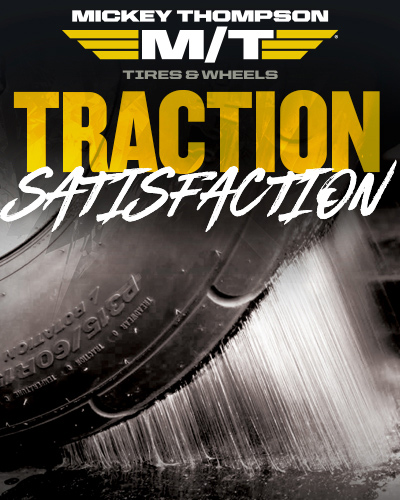BOBBY BENNETT: PLEASE, SOMEBODY DO SOMETHING
 Does anyone else wonder if the NHRA management has any clue that we are in a financial crisis at this very moment?
Does anyone else wonder if the NHRA management has any clue that we are in a financial crisis at this very moment?I wonder if they’ve noticed more than a handful of professional teams have fallen by the wayside since the season ending event at Pomona. If they have, they sure haven't reported anything in their propaganda machines.
Drag racing has lost at least two 24-race touring operations in two weeks.
At the risk of sounding like another e-zine on the web, one can’t help but wonder when the NHRA is going to become proactive to the situation. Is there any justification for purported raises to the upper series management when the supporting cast is on the verge of going under?
2009 Is Going To Be A Tough Year for Drag Racing …

Does anyone else wonder if the NHRA management has any clue that we are in a financial crisis at this very moment?
I wonder if they’ve noticed more than a handful of professional teams have fallen by the wayside since the season ending event at Pomona. If they have, they sure haven't reported anything in their propaganda machines.
Drag racing has lost at least two 24-race touring operations in two weeks.
At the risk of sounding like another e-zine on the web, one can’t help but wonder when the NHRA is going to become proactive to the situation. Is there any justification for purported raises to the upper series management when the supporting cast is on the verge of going under?
When you see guys like John Force stressing over their livelihood you know there’s a problem. When Lee Beard, a touring veteran, calls for a shortened race tour, shouldn't someone being paying attention?
Back in Glendora (Ca.), it appears that business is forging ahead – the heck with everybody else.
Motorsports, in general, is suffering. The proof can be found in stories chronicling Formula One’s McLaren cutting their racing budget by 30-percent. Read a little further into the doom and gloom and you’ll see that Honda has withdrawn from that same tour rather than spend $300 million like it did last year.
These weren’t the lead stories on most sports page because motorsports, especially Formula One, just doesn’t stack up to the news about stick and ball sports.
In my 29 years of being involved in drag racing I’ve never seen conditions as grave as we are expecting in 2009.
a d v e r t i s e m e n t
Click to visit our sponsor's website
Simply put, motorsports survives on a symbiotic relationship between the sanctioning body, the track owner, the fan, the race team and the sponsor. Each part of that equation has to be healthy in order for the others to prosper. The current economic conditions will have a direct effect on racing that many are not prepared to face. The weakest link in the motorsports chain is and will continue to be the need for sponsors.
We need the sponsors. I’d say the large majority of the race teams stopped racing for the purse years ago. The purse, as minor as it is, rarely pays even a small segment of the cost of racing per weekend. It rarely pays despite the touted raises.
What the track and the sanction take in at the gate doesn’t cover the cost of running a race team. The spectator is not going to pay the ticket price if the cars are not there. If the ticket is not purchased the race track will be in trouble. If the crowd fails to appear and the race cars do not show up, the sanctioning body could eventually fail.
It came to my attention at PRI that one major sanctioning body (not drag racing, but someone drag racing tries hard to emulate) met with their major sponsors and reduced the contract amount that was agreed upon in their last contracts. What that sanction did was convey through their actions that they know sponsors are facing difficult times.
The pillar of our sport has become the sponsor. There are very few individuals who can afford the cost of running a professional race car without the sponsor. The sponsor pays that money to expose products and services to the market (the fans).
Having a well-heeled sponsor relationship has always been the most difficult part of putting together a competitive race team. The worse thing that can happen is our race teams lose the sponsors they have now. It was difficult to get them in the first place and may be impossible to get them back as conditions improve.
What can be done by everyone involved to hold onto and grow the sponsorship base in the NHRA?
It came to my attention at PRI that one major sanctioning body (not drag racing, but someone drag racing tries hard to emulate) met with their major sponsors and reduced the contract amount that was agreed upon in their last contracts. What that sanction did was convey through their actions that they know sponsors are facing difficult times. They know sponsors have had to lay off some of their employees and reduce fixed cost. They know that the sponsor has prospered by being involved in the sport. If together we can maintain the relationships by reducing our cost and taking less in return maybe we can both benefit when times are better.
a d v e r t i s e m e n t
Click to visit our sponsor's website
This attitude has kept fence sitting sponsors from leaving. This attitude has expressed a sensitivity those sponsors hoped existed in the racing world and found those hopes become reality.
In our opinion, based on conversations with sponsor representatives, the same attitude doesn’t appear to exist within the premiere drag racing sanctioning body in the world.
Management in Glendora appears to be willing to pad their exclusive deals at a direct cost to the teams. Case in point, lost deals with the U.S. Air Force to another sanctioning body and the "secret" Pro Stock spec tire deal with Goodyear when Mickey Thompson and Hoosier both have a vested interest in developing a new product for the class. Yet these two companies were excluded without so much as a phone call, certified letter or email.
In the NHRA's world, there appears to be no crisis and they’ll clearly keep raking in the money as long as the race fans keep speaking with their dollars and giving these overpaid, under-passionate executives the idea they are doing a great job.
In our minds, nothing could be further from the truth.
When you raise the price of hospitality, a move the NHRA took in advance of the 2009 season, who is it that inevitably pays the price?
When you change your rules on sponsorship to accommodate a sponsor who refuses to sponsor race teams, yet fills your coffers, are you really looking out for everyone’s best interests?
When you run a demanding 24-race schedule when it appears you can barely fill your fields at half the races, do you honestly think the race fans are really going to be all that understanding?
When you tell race teams they cannot seek certain sponsors and the ones they have in place are essentially grandfathered into obscurity, who pays the price and who benefits?
a d v e r t i s e m e n t
Click to visit our sponsor's website
When will the leadership undertake a proactive role in this time of economic crisis?
Keep your head in the sand. Should the winds of economic disaster blow too long, when the sand has blown away forcing you to look around all that may be visible is a barren wasteland.
Where is P.R.O. in all of this? Are they too busy worrying about the size of gravel in the sand-trap to realize that if we don’t urge the NHRA to reach a compromise that there eventually won’t be anyone to test out the safety devices?
Or does the current leadership believe the best method of reaching a compromise is by not making waves, and essentially allowing the sanctioning body to pick and choose what they want to fix?
Maybe it’s time for the Godfathers of the sport, John Force, Don Prudhomme, Kenny Bernstein, Connie Kalitta and Don Schumacher, to approach the brass and let them know – something has to change. One of these days the racers will realize they are the show.
Maybe it’s time the race teams take the initiative and change the way they do business.
Just because you have a team that has all the money in the world from foreign interests, doesn’t mean you have to spend money at all costs to force the others to do the same just to retain a measure of competitiveness. But then again, that deal could correct itself, considering that when those deals were brokered, they were done so when the cost of crude oil was $140 a drum. The price is now $40 or so.
If a sanctioning body needs to think outside the box, what about the race teams? Is it better to take less now and retain the hard-to-find sponsor?
Is it time to go to the sponsor and make an offer to help cut cost? Can the strong teams make alliances with the weaker teams to benefit both themselves and the sport?
Maybe it is better to race 18 times than 24.
If that can’t be done maybe it is better to qualify 3 times instead of four. How many crew members and support people do you really need? We need to reduce the financial burden on those funding the growth of the sport - our sponsors.
Hopefully, the sport can survive the economy.
a d v e r t i s e m e n t
Click to visit our sponsor's website
Until then, here are a few suggestions:
* If we can’t cut the number of races due to contractual obligations, then let’s cut professional qualifying to one day.
* Rearrange the schedule to make it more travel friendly so teams don’t need to crisscross the country multiple times.
* Maybe teams can unionize and determine individual 18-race schedules because quite simply, sponsors don't need championships at this time. They need savings and exposure.
* Reel in the price of the nitromethane and if the parties wish not to accommodate, then seek another supplier.
* More time between rounds which allows teams to operate on smaller crews.
* Lower the hospitality prices and discontinue such frivolous rules as forcing teams to pay a fee if not using NHRA catering.
* Cut Indy and the other marathon events to shorter time frames.
* Testing limits inside and outside sanctioned tracks should be mandatory.
Maybe these solutions offer no more of a savings in racing terms than you and I skipping a meal to save money.
But we need to do something and for the NHRA, they may feel that taking the slow approach is best for their business, but it’s clearly not the solution for their supporting cast. The race teams need to look at a way to survive, now!
Each part of the successful equation needs to survive so that our sport can continue. Each of us, sanction, track, race team, spectator, sponsor and media outlet need to find a way to sacrifice for the good of the whole.
If we don’t, then we are doomed.
| {loadposition feedback} |








































